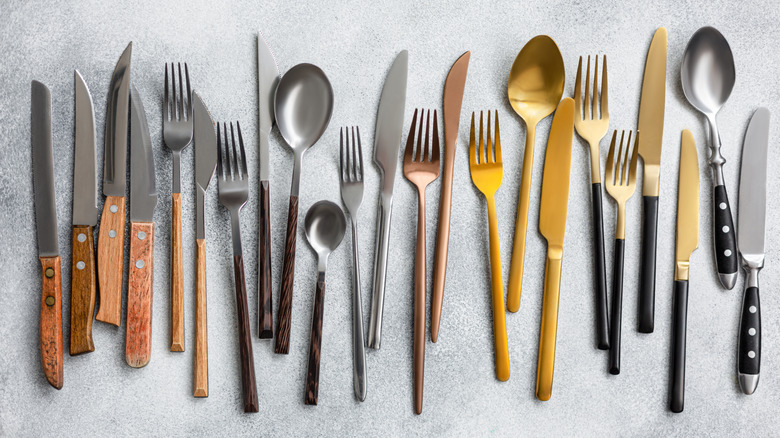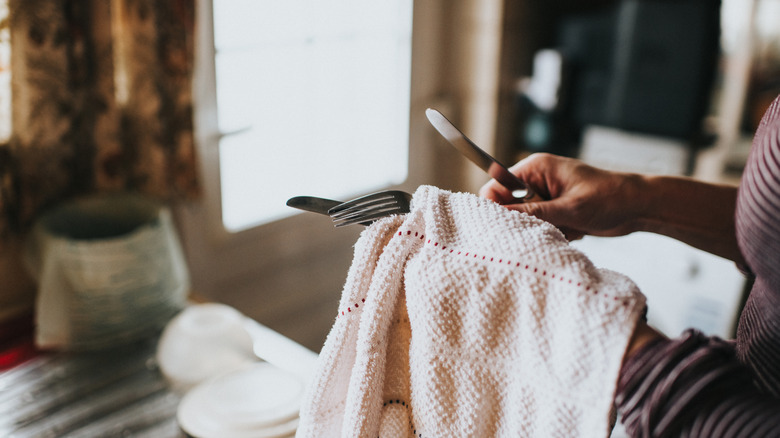The Aluminum Foil Trick For Sparkling Silverware Every Time
Between breakfast, lunch, and dinner seven days a week, your plates and silverware get more wear-and-tear than just about anything else in your kitchen. It's no wonder that once-shiny forks and knives eventually start to look a little dull. Sure, you could spring for a pricey silver polish — but chances are, the solution is already sitting in your drawer.
Enter: aluminum foil. For this hack, all you need to do is nestle a crumpled ball of foil next to your cutlery and run the dishwasher to let the magic happen. When the foil meets hot water and detergent (or baking soda), a chemical reaction occurs that transfers the sulfur atoms causing tarnish on your silverware to the aluminum, which has a higher affinity to them. The result is sparkling silverware and a dull ball of aluminum. Just be sure your aluminum foil ball is secured tightly next to your silverware, as the trick won't be effective if it comes loose.
If you don't have a dishwasher, you can still use this trick by placing your tarnished silverware in an aluminum bake tray (or a glass tray lined with aluminum foil), along with hot water, white vinegar, salt and baking soda. The tarnish lifts in just a few minutes, making this alternative faster than running a full cycle on the dishwasher and perfect in the case that you've got dinner guests on the way and no time for dull forks.
Other household ways to keep your silverware shiny
With all of aluminum foil's handy uses around the kitchen – from keeping kitchen scissors sharp to scrubbing pots and pans – there's a good chance your roll will dwindle pretty fast. Even if you're out of aluminum foil, however, there are plenty of other everyday substitutes you can use to clean silverware. A quick scrub with baking soda and a fresh lemon slice can lift away tarnish in minutes without scratching, and non-abrasive toothpaste works in much the same way. Even an unexpected kitchen staple like a splash of sour milk can help restore silverware thanks to its acidic composition.
Of course, the best approach is to stop tarnish before it starts. Silver is delicate, and dishwashers — despite being convenient — aren't always its friend. The combination of high heat, harsh detergents, and moisture can speed up corrosion. If you do opt for the dishwasher, stick to non-acidic detergents, choose the gentlest cycle, and dry your silverware immediately afterward to avoid water spots. For extra protection, hand-washing and towel-drying is your safest bet.


